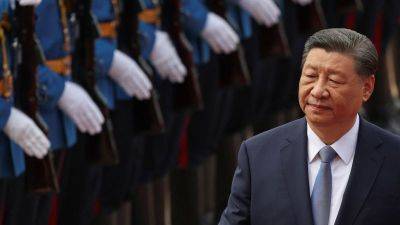Xi’s visit to Hungary and Serbia brings new Chinese investment and deeper ties to Europe’s doorstep
BUDAPEST, Hungary (AP) — When Chinese President Xi Jinping visited Hungary last week, he arrived to one of the few places in the European Union where his country is considered an indispensable ally rather than a rival. By the time he left on Friday, he’d secured deals that provide fertile ground for China’s plans of economic expansion in Europe.
After meeting with nationalist Prime Minister Viktor Orbán on Thursday, the leaders addressed a small group of select media in Hungary’s capital, Budapest, announcing the formation of an “all-weather partnership” that would usher in a new era of economic cooperation.
As most EU countries make efforts to “de-risk” their economies from perceived threats posed by China, Hungary has gone in the other direction, courting major Chinese investments in the belief that the world’s second-largest economy is essential for Europe’s future.
While Xi and Orbán didn’t unveil concrete agreements following their meeting, Foreign Minister Péter Szijjártó later said in a video that a deal had been reached on a joint Hungarian-Chinese railway bypass around Budapest, as well as a high-speed train link between the capital and its international airport.
The two countries also agreed to expand their cooperation to the “whole spectrum” of the nuclear industry, Orbán said, and deals were reached on China helping Hungary build out its network of electric vehicle charging stations and on construction of an oil pipeline between Hungary and Serbia.
Zsuzsanna Vegh, a program assistant at the German Marshall Fund and visiting fellow at the European Council on Foreign Relations, said those deals were “a clear signal that China sees Hungary as a key and reliable ally” in the EU as it seeks to reverse Europe’s






